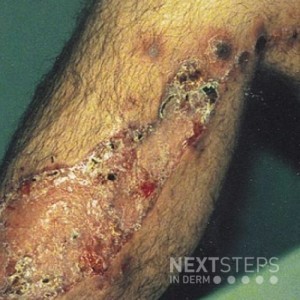Ask the Expert: Dr. Hilary Baldwin on Acne
 Acne Awareness Month gives us access to international thought leader and acne guru Dr. Hilary Baldwin. Dr. Baldwin is medical director of the Acne Treatment & Research Center in Morristown, NJ which adopts an integrative approach to provide acne patients with additional services not typically offered in traditional dermatology clinics. If you have questions about her integrative approach to ma …
Acne Awareness Month gives us access to international thought leader and acne guru Dr. Hilary Baldwin. Dr. Baldwin is medical director of the Acne Treatment & Research Center in Morristown, NJ which adopts an integrative approach to provide acne patients with additional services not typically offered in traditional dermatology clinics. If you have questions about her integrative approach to ma …
 Acne Awareness Month gives us access to international thought leader and acne guru Dr. Hilary Baldwin. Dr. Baldwin is medical director of the Acne Treatment & Research Center in Morristown, NJ which adopts an integrative approach to provide acne patients with additional services not typically offered in traditional dermatology clinics. If you have questions about her integrative approach to ma …
Acne Awareness Month gives us access to international thought leader and acne guru Dr. Hilary Baldwin. Dr. Baldwin is medical director of the Acne Treatment & Research Center in Morristown, NJ which adopts an integrative approach to provide acne patients with additional services not typically offered in traditional dermatology clinics. If you have questions about her integrative approach to ma … Continue reading "Ask the Expert: Dr. Hilary Baldwin on Acne"


 Which subtype of the human papilloma virus is most likely to have caused this infection?
A. HPV, type 1
B. HPV, type 2
C. HPV, type 3
D. HPV, type 5
E. HPV, type 6
To find out the correct answer and read the explanation, click here.
Brought to you by our Brand Partner
…
Which subtype of the human papilloma virus is most likely to have caused this infection?
A. HPV, type 1
B. HPV, type 2
C. HPV, type 3
D. HPV, type 5
E. HPV, type 6
To find out the correct answer and read the explanation, click here.
Brought to you by our Brand Partner
…  Backed by a mountain of evidence, Dr. Zitelli walked us through the new and changing role of sentinel lymph node biopsy for melanoma in a riveting 20-minute talk presented at the 16th annual ODAC conference. Here are the highlights.
"Let’s separate what’s really evidence based from what you’ve been told.”
Before delving in, Dr. Zitelli skillfully laid the framework for his lecture. The c …
Backed by a mountain of evidence, Dr. Zitelli walked us through the new and changing role of sentinel lymph node biopsy for melanoma in a riveting 20-minute talk presented at the 16th annual ODAC conference. Here are the highlights.
"Let’s separate what’s really evidence based from what you’ve been told.”
Before delving in, Dr. Zitelli skillfully laid the framework for his lecture. The c …  Can you think of a skin condition that has a greater negative impact on quality of life than eczema or psoriasis? That’s right, you guess it—hyperhidrosis! I still remember my first hyperhidrosis patient who refused to shake people’s hands, go on dates, or attend social events due to his condition. After his treatment, he was like a new man. I can’t tell you how satisfying it was t …
Can you think of a skin condition that has a greater negative impact on quality of life than eczema or psoriasis? That’s right, you guess it—hyperhidrosis! I still remember my first hyperhidrosis patient who refused to shake people’s hands, go on dates, or attend social events due to his condition. After his treatment, he was like a new man. I can’t tell you how satisfying it was t …  This patient acquired an infection with a microorganism that was most likely inoculated into the skin from contact with:
A. Dead Fish
B. Kittens
C. Jacuzzi tubs
D. Fresh water lakes
E. Rose thorns
To find out the correct answer and read the explanation, click here.
Brought to you by our Brand Partner
…
This patient acquired an infection with a microorganism that was most likely inoculated into the skin from contact with:
A. Dead Fish
B. Kittens
C. Jacuzzi tubs
D. Fresh water lakes
E. Rose thorns
To find out the correct answer and read the explanation, click here.
Brought to you by our Brand Partner
…